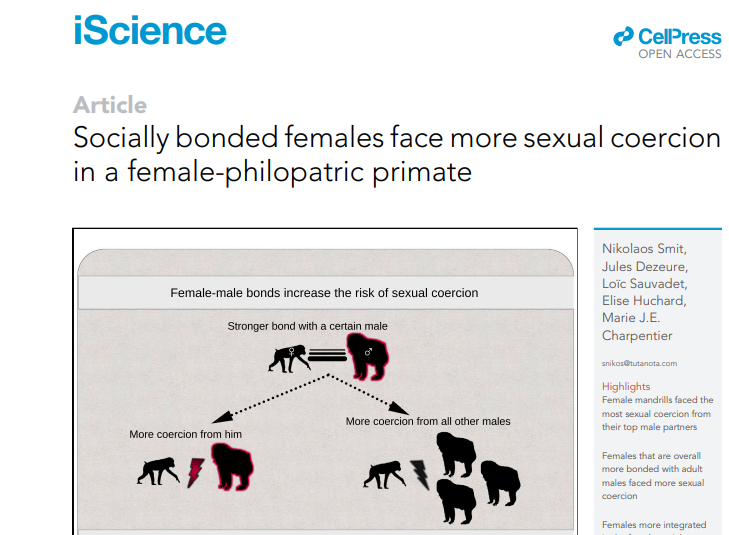Sexual coercion is a manifestation of sexual conflict that increases the mating success of males while inflicting costs on females. Although previous work has examined inter-individual variation in male sexual coercion tactics, little is known about female counter-strategies. We investigated whether social bonding mitigates the extent of sexual coercion experienced by females. of sexual coercion experienced by female mandrills (Mandrillus sphinx), as a putative mechanism linking sociality to fitness. Surprisingly, females experienced the most coercion from males with whom they had formed the strongest bonds, while the strength of bonds between females and males was also positively correlated with coercion exerted by all other males. Finally, greater social integration in the female network was positively correlated with coercion, through a direct mechanism of "public exposure" and unmediated by female reproductive success or the potential for retaliation. Overall, this study shows that neither inter- nor intra-sexual ties protect against sexual coercion, and identifies, on the contrary, a hidden cost of social ties.


